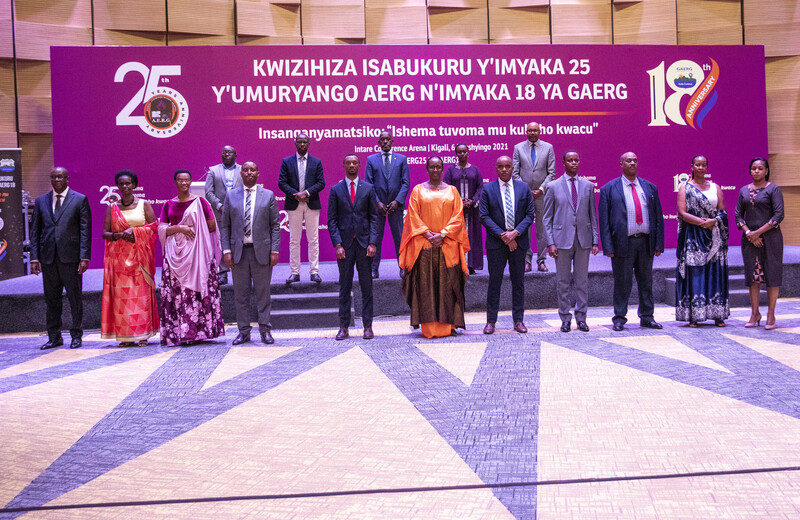
By Bertrand Byishimo, The New Times
The Association of Genocide Survivors Students (AERG) will on Saturday, November 6, mark 25 years’ anniversary of its existence, coinciding with 18 years’ anniversary for the Graduates Genocide Survivors Organization (GAERG).
With a theme, “Ishema tuvoma mu kubaho kwacu” loosely translated as the pride we fetch from our existence, the celebration will be held at Intare Conference Arena graced by government officials, members of GAERG and AERG as well as civil society organizations.
The anniversary aims at celebrating members of AERG and GAERG who have been able to withstand tragedious moments of the 1994 genocide against the Tutsi and managed to strive for a better future.
Egide Gatari, the president of GAERG emphasizes that a lot of milestones have been achieved during the course of 25-years, but explains that mental health was a priority.
“Our priority was not to help people get wealthy, but our members had no families and wanted someone to take care of them, to be near them and walk in the shoes of their families,” he recalls.
“And as of today, when our member has a funeral, they get AERG members to comfort them, when one is wedding, they get people to congratulate them and so forth that creates a family environment which is what these young survivors primarily needed,” he added.
Apart from mental health, several other milestones were achieved during the course of 25 years, including a multi-billion shelter for the genocide survivors (One Dollar Campaign building located in Gisozi sector) and the establishment of Aheza healing and career center in Bugesera district among others.
A new home
Young genocide survivors who have been in AERG and GAERG testify to its psycho-social and mental support that transformed the group into a new family.
Kevine Musabyimana is one of AERG members who joined the association back in 2007 when she was still a high school student.
The 29-year old was orphaned by the 1994 genocide against the Tutsi at the age of two which dragged her life into moments of depression and loneliness which were relieved upon joining AERG.
“In the association, I found people whom we share the same problems and I was open to talk, got relieved and started a new life of socializing with people and regaining the hope of living,” she recalls.
“It is very difficult to live a kind of life without anyone to look up to, but upon joining the association, it acted as my new family, and I considered it as my new home,” she said.
The mother of a son added even the business she runs now in Kigali city is a result of the skills she obtained in one of the employment training program of GAERG.
Two years after the 1994 genocide against the Tutsi, the University of Rwanda reopened doors to its students.
Among them, were genocide survivor students who had no one to look up to, and decided to create families between themselves, naming their association AERG on October 20, 1996.
From that time, the association has facilitated more than 150,000 survivor students through mental health and socio-economic development.
